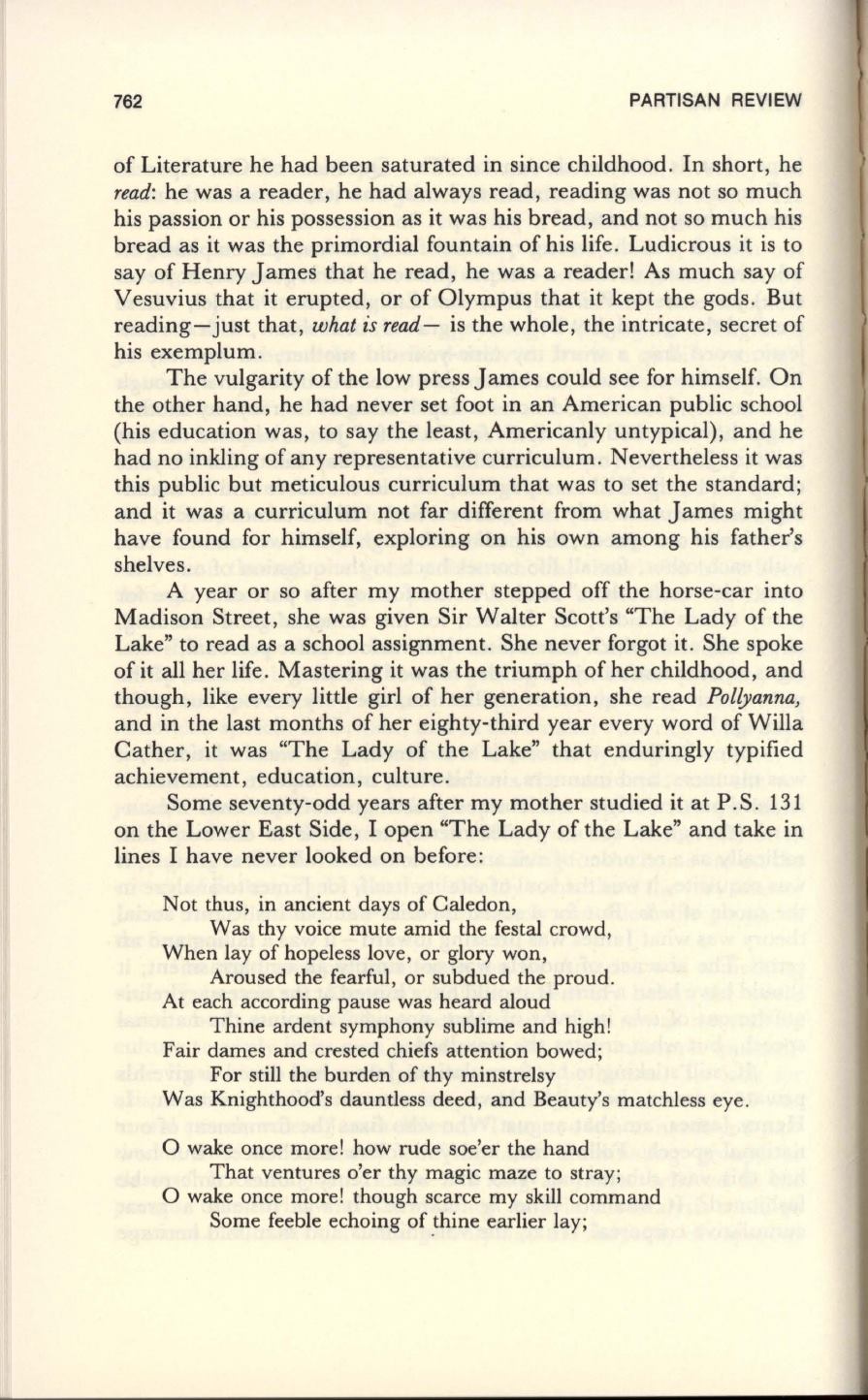
762
PARTISAN REVIEW
of Literature he had been saturated in since childhood . In short, he
read:
he was a reader, he had always read, reading was not so much
his passion or his possession as it was his bread, and not so much his
bread as it was the primordial fountain of his life . Ludicrous it is to
say of Henry James that he read, he was a reader! As much say of
Vesuvius that it erupted, or of Olympus that it kept the gods. But
reading- just that,
what is read-
is the whole, the intricate , secret of
his exemplum.
The vulgarity of the low press James could see for himself. On
the other hand, he had never set foot in an American public school
(his education was, to say the least, Americanly untypical), and he
had no inkling of any representative curriculum. Nevertheless it was
this public but meticulous curriculum that was to set the standard;
and it was a curriculum not far different from what James might
have found for himself, exploring on his own among his father's
shelves.
A year or so after my mother stepped off the horse-car into
Madison Street, she was given Sir Walter Scott's "The Lady of the
Lake" to read as a school assignment. She never forgot it. She spoke
of it all her life. Mastering it was the triumph of her childhood, and
though, like every little girl of her generation, she read
Pollyanna,
and in the last months of her eighty-third year every word of Willa
Cather, it was "The Lady of the Lake" that enduringly typified
achievement, education, culture .
Some seventy-odd years after my mother studied it at P. S. 131
on the Lower East Side, I open "The Lady of the Lake" and take in
lines I have never looked on before:
Not thus, in ancient days of Caledon,
Was thy voice mute amid the festal crowd,
When lay of hopeless love, or glory won,
Aroused the fearful, or subdued the proud.
At each according pause was heard aloud
Thine ardent symphony sublime and high!
Fair dames and crested chiefs attention bowed;
For still the burden of thy minstrelsy
Was Knighthood's dauntless deed, and Beauty's matchless eye .
0 wake once more! how rude soe'er the hand
That ventures o'er thy magic maze to stray;
0 wake once more! though scarce my skill command
Some feeble echoing of .thine earlier lay;


